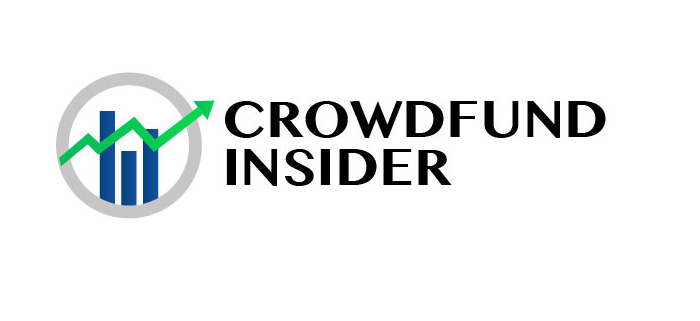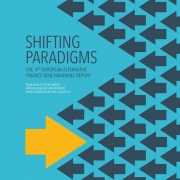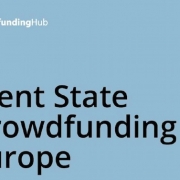European AltFin Benchmarking Research 2014
As reported last week, the European Alternative Finance Benchmarking Survey was launched with the support of major European industry associations: CrowdfundingHub, the University of Cambridge, EY the Global Professional Services Organisation. This is the largest study to date on crowdfunding, peer-to-peer lending and other forms of alternative finance in Europe. This benchmarking survey, which opened on 25 November and closes on 20 December, aims to capture the size, transactional volume and growth of the alternative finance markets across Europe.
Major national and regional crowdfunding associations in France, Germany, Spain, Italy, the Netherlands, the Nordic countries and the UK are all participating in this groundbreaking research. This benchmarking survey is supported by FPF, ANACOFI and AFIP (France), the German Crowdfunding Network, the Spanish Crowdfunding Association, CrowdfundingHub (Dutch), AISCRIS (Italy), the Nordic Crowdfunding Alliance, the UK Crowdfunding Association, the P2P Finance Association, the European Crowdfunding Network, the European Equity Crowdfunding Association as well as the P2P Banking.com.
CrowdfundingHub founder Mr. Ronald Kleverlaan, crowdfunding strategist, international key-note speaker, crowdfunding and crowd financing advocate, initiates Crowdfund Insider’s exclusive Cambridge-EY European Alternative Finance Benchmarking Research (below: the Research) series.
As expert advisor on crowdfinancing for the European Commission, advisory board member of several crowdfunding initiatives, Vice-Chairman of the European Crowdfunding Network, Founder of CrowdfundingHub and strategic consultant on civic- and SME-crowdfunding, Kleverlaan not only understands European crowdfunding trends, he helps to ignite them.
Why CrowdfundingHub decided to participate in the Research?
Ronald: The core mission of the CrowdfundingHub is to create a sustainable ecosystem for alternative finance. We do this as an independent knowledge centre with research activities, by educating the different stakeholders with public events and by bringing together the different stakeholders in Roundtable sessions. The reason we joined this research is that it is very important for policy makers and regulators to have a clear understanding of the current size and growth in this fast developing market. Because the alternative finance market in the Netherlands developed early and we have a lot of different types of platforms compared to other European countries, we have a lot of experiences to share with other countries. It is also interesting for Dutch platforms to benchmark their own status with their European competitors.
What can the we learn from the Netherlands and the initiative of the Vrije Universiteit (VU), Amsterdam Business School (UvA) and the CrowdfundingHub?
Ronald: The Amsterdam Universities and the CrowdfundingHub work closely together on crowdfunding research. Over 50 students, PhD researchers and academics are focussing on different areas of crowdfunding and sharing their concepts and results. The academic research seminar organised by these three organisations was a great success and showed the multi-faceted research area of crowdfunding. A follow up event is planned in Q1 of 2015. These type of events are very important for this developing industry. At this moment we should share as much of our experience and knowledge as possible to make sure this industry will develop faster and become more professional.
How did the Dutch Government act to propel crowdfunding & P2P in the Netherlands? How are regulations evolving?
Ronald: From the start the Dutch government and regulators were very positive about crowdfunding. The regulator was flexible about new initiatives. This ensured a very innovative and creative ecosystem with crowdfunding platform for many different niches and creative business models being tested. One of the first crowdfunding platforms, Sellaband, was launched in The Netherlands, as well as the first equity crowdfunding platform, Symbid. After that, a number of other innovative platforms offering revenue sharing or convertible notes were launched. At this moment almost 100 crowdfunding platforms are live in the Netherlands. In the last months the regulators are doing an in-depth research of the market and are talking with all the stakeholders to identify potential changes they can or should do. The Dutch government is also promoting the Crowdfunding industry. The Ministry of Economic affairs financed a large public promotional campaign on crowdfunding together with the chamber of commerce and the main Crowd Investing platforms.
What will be done to maintain the growth of Alternative Finance?
Ronald: This is indeed very important and the main reason why we launched the CrowdfundingHub. It is very important to have an independent organisation not only educating entrepreneurs and investors, but also to do independent research and share these experiences with the rest of the stakeholders. There will be defaults, just as this will happen when businesses get funding from traditional sources, but most likely they will be far less then
with traditional finance because more investors have a (personal) connection with the company and will help them to succeed. It is therefore very important that organisations likethe CrowdfundingHub, but also the European Crowdfunding Network and the national associations, are available to answer questions when something goes wrong and put it in perspective. These organizations should also make sure they promote success stories to educate other entrepreneurs and the general public about the potential and opportunities.








